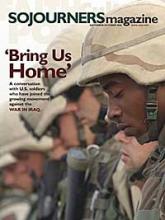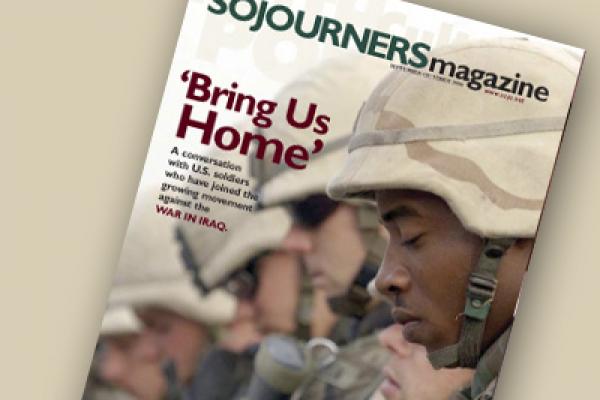When Jason Webb joined the Army in 2004, he hoped his assignment as a telecommunications operator would keep him at arm’s length from combat. Though Webb, now 24, wanted to serve his country, he felt uneasy about killing another human being. He hoped a desk job would save him from a crisis of conscience.
It didn’t. After seven months stationed in Heidelberg, Germany, Webb decided he could no longer live with himself if he stayed in the Army, so he applied for honorable discharge as a conscientious objector (CO) under Army Regulation 600-43. Several weeks later, with his CO application still in process, Webb was deployed to Iraq. A graduate of The Master’s College, an evangelical Christian school in California, Webb knew his family wanted him to fulfill his term of service. He also knew he couldn’t fire a gun at another person. So although he deployed to Iraq as ordered, Webb would not carry a working weapon on patrols. Now he had nothing but conscience to protect him.
“The reason God has given [humans] a conscience is to be a moral compass,” Webb wrote in his application for classification as a CO, “to serve as a guide to what is right and what is wrong. It is for that reason that I cannot kill, participate in warfare, or support any organization that does.”
Webb’s transformation from enlister to objector is not an aberration. Since the start of operations in Iraq in March 2003, a growing number of American soldiers have been seeking CO discharges. How many remains disputed. According to an Army Public Affairs spokesperson, 188 soldiers applied for CO discharges between January 2003 and December 2005; of those applications, 87 were approved.
Read the Full Article

